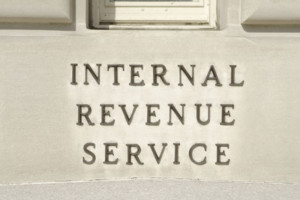 In an April 2016 study released by the IRS, the government reported that an average of $406 billion in taxes was not collected each year between 2008 and 2010. The IRS euphemistically calls this the “tax gap,” i.e., the difference between what taxpayers owe and what they actually pay.
In an April 2016 study released by the IRS, the government reported that an average of $406 billion in taxes was not collected each year between 2008 and 2010. The IRS euphemistically calls this the “tax gap,” i.e., the difference between what taxpayers owe and what they actually pay.
What does the tax gap mean to the average taxpayer?
Consider this: By comparison, the entire U.S. deficit for 2016 is around $534 billion. If the IRS collected 100% of the taxes owed, every American paying federal income tax (roughly 122 million people) could receive a $3,300 credit and the government would still receive the same amount in taxes. If 100% tax collection seems overly ambitious, consider a 90% collection rate: under this scenario, every taxpayer could receive a $2,045 credit. If the tax gap were addressed, the government could lower taxes across the board and still collect the same amount of money. Or, the government could use the uncollected taxes to shore up at-risk federal programs like Social Security and Medicare. The point is tax evasion is not a victimless crime — we’re talking about federal money that could be put to good use.
What can we do?
The tax gap is not likely to close on its own. And unfortunately, gaps of the kind seen between 2008 and 2010 are not uncommon. The previous report, covering 2006 through 2008, showed a similar tax gap.
The good news: the government has tools to reduce the tax gap. The bad news: those tools are often underutilized.
The IRS Whistleblower Program is a perfect example. If it were used as intended, it could significantly reduce the tax gap. Frustrating to many, however, it has remained dramatically underutilized.
Here’s how it works. The IRS Whistleblower Program incentivizes individuals to come forward and report persons who fail to pay the tax that they owe. If the government uses a whistleblower’s information and recovers unpaid taxes, the whistleblower might be eligible for a reward of up to 30% of the unpaid taxes, penalties, and other amounts the government collects. The IRS Whistleblower Program is modeled after other successful whistleblower and qui tam programs such as the SEC Whistleblower Program and the False Claims Act, also known as the Lincoln Law, as it was signed into law under President Lincoln to stem contractor abuses during the Civil War. Both the SEC Whistleblower Program and the False Claims Act have proven incredibly valuable at deterring fraud and returning funds to the government treasury. The Justice Department has called the FCA the single most effective weapon in its arsenal to combat fraud against the government, and for the past several years, the government has recovered billions of dollars each year under the FCA.
Nonetheless, the IRS Whistleblower Program remains largely unused.
“At a time when the IRS budget has been slashed to the bone, and the agency is operating with 25 percent fewer enforcement personnel than it once had, it’s important for the Service to use every enforcement tool at its disposal,” said Patrick Burns of the Taxpayers Against Fraud Education Fund.
Mr. Burns notes that “the IRS Whistleblower Program has recovered $3 billion since 2007,” but “that it could, and should, be recovering that much money every year.”
The IRS Whistleblower Program will not magically close the tax gap, but dusting it off and putting it into service will undoubtedly help. As Mr. Burns says, every enforcement tool ought to be put to use. Whistleblower programs like the False Claims Act and SEC Program have a proven track record and can provide an excellent template for successfully implementing the IRS Whistleblower Program.
When the next IRS “tax gap” report is released, let’s hope the IRS Whistleblower Program is operating at full force.
If you have any questions about, or would like to submit information to the IRS Whistleblower Program, please contact Behn & Wyetzner, Chtd.